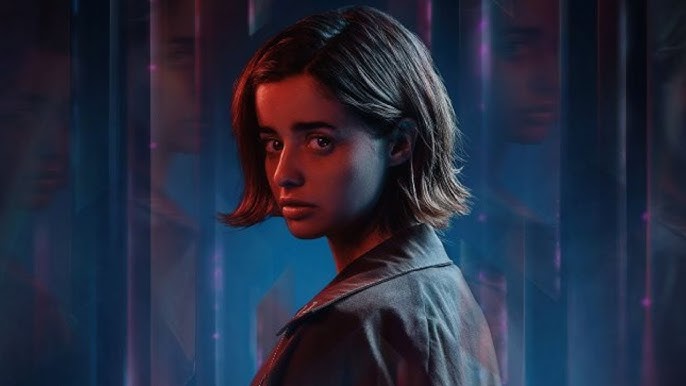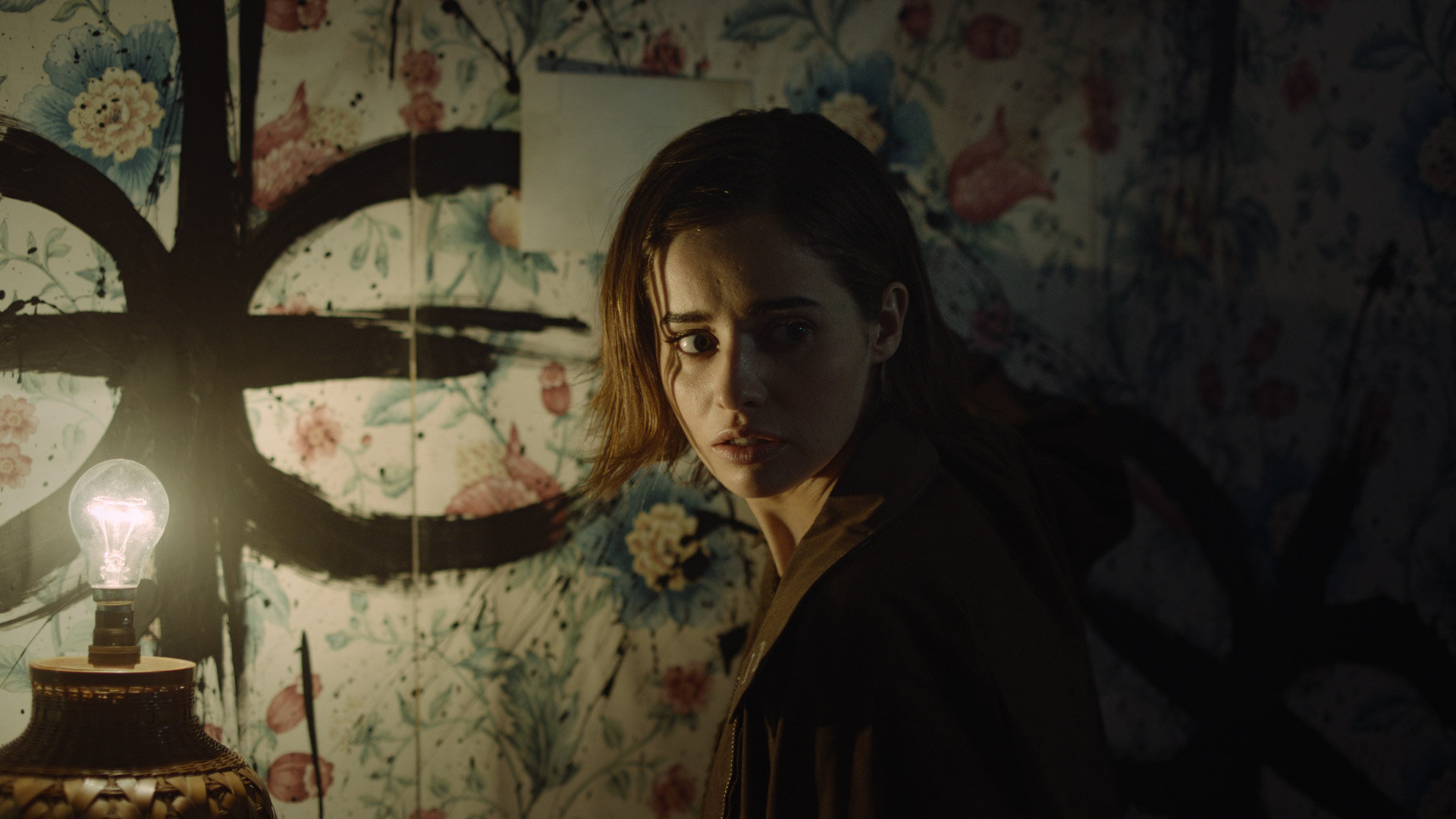🎬 Erica (2019): A Cinematic Game That Blurs the Lines Between Interactive Fiction and Suspense

Erica (2019) is an innovative interactive film-game hybrid that immerses the player in a gripping psychological thriller. Developed by Flavourworks and released on PlayStation 4 and later other platforms, Erica blends live-action cinematography with player-driven narrative choices, creating a unique experience where every decision impacts the story’s direction. With a dark, atmospheric storyline and beautifully shot visuals, Erica pushes the boundaries of how games and films can merge, delivering an eerie and engaging mystery that keeps players on edge until the final moments.
Plot Overview:
The story revolves around Erica Mason (Holly Earl), a young woman haunted by traumatic memories of her father’s mysterious murder. Erica has been plagued by recurring visions, some of which seem to suggest that her father’s death was part of something much larger and darker. After receiving a cryptic package that forces her to confront her past, Erica is drawn to Delphi House, a psychiatric institution that her father once worked for, and where secrets from her past begin to unravel.
As she explores the house and interacts with its staff and patients, Erica uncovers clues about an occult conspiracy that seems connected to her father’s death. She must make decisions that affect her relationships, her understanding of the events unfolding around her, and, ultimately, her fate. Each choice you make guides Erica’s journey, leading to multiple possible endings that reflect how you’ve navigated the mystery.
Erica keeps players engaged through its seamless blend of live-action footage and interactive mechanics, where every decision you make is subtly woven into the flow of the narrative. The game’s touch-based controls and quick-time events ensure that players are actively involved in every aspect of the story, from small gestures to major choices that shape the plot.

Character Development and Themes:
Holly Earl’s portrayal of Erica Mason is the emotional core of the game. Her performance brings depth and vulnerability to a character caught in a whirlwind of psychological suspense and uncertainty. Erica’s journey is one of discovery—of both her past and her own inner strength. As the protagonist, she transitions from a confused, emotionally scarred young woman into someone willing to confront the sinister forces that have shaped her life.
The player’s choices influence how Erica interacts with those around her. Key figures include Lucien Flowers (Terence Maynard), the enigmatic head of Delphi House, and Dr. Ballard (Chelsea Edge), a psychiatrist who may or may not be trustworthy. Each interaction reveals more about Erica’s past, as well as the secrets that Delphi House holds.
One of the central themes of Erica is the question of reality versus illusion. As Erica delves deeper into the mystery, she—and by extension, the player—must confront increasingly disturbing revelations about her family, Delphi House, and herself. The lines between what is real and what is imagined blur, adding to the game’s psychological tension.

Another prominent theme is trauma and its effect on memory. Erica’s recurring visions and flashbacks to her childhood shape her understanding of the present. The story explores how trauma can distort perception and how confronting the past is necessary for healing. The occult elements of the plot also tie into themes of control and manipulation, as Erica grapples with the idea that forces beyond her understanding may have shaped her destiny.
Interactive Gameplay and Visual Style:
The most distinct feature of Erica is its combination of live-action footage with interactive gameplay. The game offers a unique take on the “choose-your-own-adventure” style, using live-action actors and real locations to make the story feel more immersive. Players control Erica through touch-based interactions, which are simple yet effective in heightening the sense of agency and connection with the character. Whether it’s opening a letter, turning a key, or making pivotal decisions, each action feels tactile and immediate.
The choices you make ripple throughout the game, influencing not just dialogue but the course of the story itself. Small decisions—such as how Erica responds to a question or whether she trusts certain characters—can have significant consequences down the line. This creates a highly replayable experience, as different decisions lead to different outcomes and endings.

Visually, Erica stands out for its atmospheric cinematography and high production value. The moody, shadow-filled corridors of Delphi House, the haunting flashbacks to Erica’s childhood, and the use of close-ups to emphasize emotional moments create a tense, immersive environment. The live-action footage is seamlessly integrated with the game’s interactive elements, giving it a cinematic quality that keeps players engaged in the unfolding mystery.
The game’s score, composed by Austin Wintory, enhances the suspense and emotional depth of the story. The music fluctuates between eerie, unsettling melodies and softer, more introspective moments, complementing Erica’s journey through trauma and revelation.
Criticism:
While Erica is praised for its innovative blending of film and game mechanics, it has received some criticism regarding its limited interactivity. The game’s reliance on quick-time events and touch-based controls may feel simplistic to players expecting more complex gameplay mechanics. Additionally, some choices appear to have minimal impact on the overall story, which can lessen the feeling of agency in certain moments.
Another critique is that the pacing of the story can feel uneven. While the mystery and suspense build effectively in the early parts of the game, some players may find the narrative’s climax and resolutions unsatisfying, particularly if their decisions lead to one of the more abrupt or ambiguous endings.
The story itself, while engaging, can also feel a bit derivative of other psychological thrillers, drawing heavily from familiar tropes such as the troubled protagonist with a traumatic past, the mysterious institution, and occult conspiracies. However, Erica elevates these tropes through its interactive format and the strength of its performances.

Final Thoughts:
Erica is a bold experiment that successfully blurs the line between cinema and video game, offering an engaging interactive thriller that invites players to immerse themselves in a psychological mystery. Holly Earl’s compelling performance as Erica Mason, combined with the game’s dark, atmospheric visuals and player-driven narrative, makes Erica a standout experience for fans of both interactive storytelling and suspenseful drama.
While the game’s limited interactivity and pacing issues may detract slightly from the overall experience, Erica still offers a unique and emotionally charged narrative that rewards multiple playthroughs. For those looking for a cinematic game that prioritizes story, mood, and character over complex mechanics, Erica delivers an intriguing and immersive journey.
Game Information:
- Title: Erica
- Developer: Flavourworks
- Publisher: Sony Interactive Entertainment
- Starring: Holly Earl, Terence Maynard, Chelsea Edge
- Genre: Interactive Thriller, Psychological Horror
- Release Date: August 19, 2019
- Platforms: PlayStation 4, PC, iOS
- Rating: M for Mature
- Plot Summary: Erica Mason, haunted by the mysterious murder of her father, is drawn into the dark and unsettling world of Delphi House, a psychiatric institution with ties to her past. As Erica uncovers a web of conspiracy, occult rituals, and hidden secrets, players guide her through critical decisions that shape her journey and the outcome of the story.
SUGGESTED VIDEO FOR YOU:
[Movie Review] The Legend of a Hero Specializing in Hunting the Most Terrible Monsters in Greece
[Movie Review] The Killer’s Game (2024): A Deadly Contract, A Race Against Time











